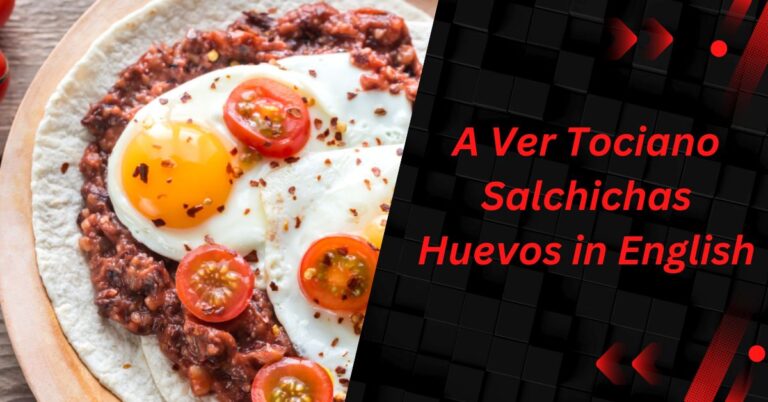Stefany Yethzabel Huayhua Romani: Preserving Indigenous Culture and Heritage
Working with Stefany Yethzabel Huayhua Romani has been an eye-opening experience. Her dedication to preserving indigenous cultures and her deep respect for traditional practices have profoundly impacted my understanding of cultural heritage. Stefany’s personal connection to her work is evident in every project she undertakes.
Stefany Yethzabel Huayhua Romani is a beacon of hope for those passionate about preserving indigenous cultures. Her remarkable efforts in cultural advocacy and documentation have made a significant impact on communities worldwide. Stefany’s work highlights the urgent need to protect and celebrate cultural diversity.
Join us as we uncover the remarkable journey of Stefany Yethzabel Huayhua Romani and her pivotal role in safeguarding indigenous heritage. Discover how her groundbreaking work is shaping the future of cultural preservation and making a lasting impact on communities across the globe.
Who is Stefany Yethzabel Huayhua Romani?
Stefany Yethzabel Huayhua Romani is a cultural advocate, researcher, and activist who has dedicated her life to preserving and promoting indigenous cultures, particularly those from her native South America.
She hails from a region rich in cultural diversity, where traditions and languages have been passed down through generations. However, these cultural practices are increasingly at risk due to modernization, migration, and the influence of global media.
Stefany’s work centers on documenting these traditions, supporting indigenous communities in maintaining their cultural practices, and raising awareness about the importance of preserving cultural diversity. Her efforts have made her a well-known figure among cultural preservationists, educators, and activists.
The Importance of Preserving Indigenous Cultures
Indigenous cultures are a vital part of the world’s cultural heritage. They represent a wide range of traditions, languages, and knowledge systems that have been developed over thousands of years.
However, these cultures are often marginalized or threatened by external forces, including colonization, globalization, and environmental changes.
Cultural Homogenization: A Growing Concern
In the 21st century, the risk of cultural homogenization—the process by which different cultures become increasingly similar—has become a significant concern. As global media and technology spread, they often promote a limited set of cultural norms and values, which can overshadow local traditions.
This process can lead to the loss of languages, customs, and ways of life that have been carefully preserved for generations.
Why Cultural Diversity Matters?
Cultural diversity is essential for several reasons. It fosters a rich tapestry of human experience, allowing for a variety of perspectives, ideas, and solutions to global challenges. It also supports resilience, as communities with strong cultural identities are often better able to withstand external pressures.
Preserving indigenous cultures, therefore, is not just about saving old traditions; it’s about maintaining a diverse and vibrant world where different ways of life can thrive.
Stefany Yethzabel Huayhua Romani’s Contributions
Stefany Yethzabel Huayhua Romani has made significant contributions to the field of cultural preservation. Her work encompasses several key areas:
1. Documentation and Research
One of Stefany’s primary focuses has been documenting the languages, traditions, and practices of indigenous communities. This work is crucial because many of these traditions are passed down orally and may not be recorded in written form. By documenting them, Stefany helps ensure that they are not lost to future generations.
Her research often involves working closely with indigenous communities, gaining their trust, and collaborating with them to accurately represent their cultures. This approach is essential in avoiding the pitfalls of cultural appropriation or misrepresentation.
2. Advocacy and Awareness
Beyond documentation, Stefany is a passionate advocate for the rights and recognition of indigenous peoples. She works to raise awareness about the challenges these communities face, including land rights issues, economic marginalization, and the impact of climate change on traditional ways of life.
Through public speaking, writing, and participation in international forums, Stefany has helped bring the voices of indigenous peoples to a global audience. Her advocacy work has been instrumental in influencing policies and initiatives aimed at protecting indigenous rights and cultures.
3. Education and Community Support
Stefany also focuses on education, both within indigenous communities and in broader society. She believes that education is key to cultural preservation, as it empowers individuals to take pride in their heritage and pass it on to future generations.
She has been involved in developing educational programs that teach indigenous languages, history, and cultural practices. These programs are often designed in collaboration with community members to ensure they are relevant and respectful of local traditions.
4. Collaboration with Global Organizations
Stefany Yethzabel Huayhua Romani has also collaborated with global organizations that work on cultural preservation, human rights, and sustainable development. Through these partnerships, she has been able to amplify her impact and contribute to broader efforts to protect cultural diversity.
Her work with these organizations often involves developing strategies for cultural preservation, advising on policy initiatives, and participating in international conferences and discussions.
The Impact of Stefany’s Work on Indigenous Communities
Stefany’s efforts have had a profound impact on the communities she works with. By documenting their traditions, advocating for their rights, and supporting their educational initiatives, she has helped many indigenous groups maintain their cultural identities in the face of external pressures.
Empowering Communities
One of the most significant impacts of Stefany’s work is the empowerment of indigenous communities. By involving them in the documentation and preservation of their own cultures, she ensures that they have control over how their traditions are represented and passed on. This approach helps build community resilience and fosters a sense of pride and ownership.
Raising Global Awareness
Stefany’s advocacy work has also helped raise global awareness about the importance of preserving indigenous cultures. By bringing these issues to the attention of a wider audience, she has contributed to a growing movement that seeks to protect cultural diversity and support indigenous rights.
Influencing Policy
Through her collaborations with global organizations and participation in international forums, Stefany has influenced policies and initiatives aimed at protecting indigenous cultures.
Her work has helped shape discussions on cultural preservation, human rights, and sustainable development, contributing to positive changes at both the local and global levels.
Challenges Faced by Stefany Yethzabel Huayhua Romani
Despite her successes, Stefany has faced numerous challenges in her work. These challenges highlight the broader difficulties faced by those working in the field of cultural preservation.
1. Limited Resources
One of the primary challenges Stefany faces is the lack of resources available for cultural preservation work. Funding for initiatives that document and promote indigenous cultures is often limited, making it difficult to sustain long-term projects.
2. Political and Social Barriers
In some regions, political and social barriers can make it challenging to work with indigenous communities. Governments may not recognize the rights of these communities, or there may be social stigmas associated with indigenous cultures. Stefany often has to navigate these complex dynamics to carry out her work effectively.
3. The Threat of Cultural Appropriation
Cultural appropriation—the adoption of elements of one culture by members of another culture, often without understanding or respect—poses a significant challenge. Stefany must ensure that her work does not inadvertently contribute to this problem, which can undermine the very cultures she seeks to preserve.
4. Environmental Challenges
Environmental changes, including deforestation, climate change, and land degradation, threaten the traditional ways of life of many indigenous communities.
Stefany’s work often intersects with environmental advocacy, as the preservation of culture is closely tied to the preservation of the land and environment in which these cultures thrive.
The Future of Cultural Preservation
Looking ahead, the work of cultural preservation will continue to be crucial in maintaining the world’s cultural diversity. Stefany Yethzabel Huayhua Romani’s efforts are part of a broader movement that seeks to protect and promote indigenous cultures in the face of globalization and other external pressures.
The Role of Technology
Technology can play a vital role in cultural preservation. Digital platforms can be used to document and share indigenous knowledge, languages, and traditions with a global audience. Stefany has already begun to explore these possibilities, using digital tools to amplify her work and reach a wider audience.
Building Global Networks
Collaboration and networking will be essential for the future of cultural preservation. By building global networks of cultural advocates, researchers, and activists, the movement can gain strength and influence. Stefany’s work in this area, particularly her collaborations with international organizations, will be a model for future efforts.
Empowering the Next Generation
Finally, empowering the next generation of indigenous leaders will be key to the long-term success of cultural preservation efforts. Stefany’s focus on education and community support is an important step in this direction, as it helps ensure that younger generations are equipped to carry on their cultural traditions.
FAQs About Stefany Yethzabel Huayhua Romani
1. What inspired Stefany Yethzabel Huayhua Romani to focus on cultural preservation?
Stefany was inspired by her own cultural heritage and the realization that many indigenous traditions and languages were at risk of being lost. Her passion for preserving these cultures grew out of a deep respect for her ancestors and a commitment to ensuring that future generations can experience and learn from their rich cultural history.
2. How does Stefany’s work impact indigenous communities?
Stefany’s work empowers indigenous communities by involving them in the documentation and preservation of their own cultures. She helps raise awareness about their challenges and advocates for their rights, contributing to the protection and promotion of their cultural identities.
3. What are some challenges Stefany faces in her work?
Some challenges include limited resources, political and social barriers, the threat of cultural appropriation, and environmental challenges that threaten traditional ways of life.
4. How can technology support cultural preservation?
Technology can be used to document and share indigenous knowledge, languages, and traditions. Digital platforms allow for the preservation of cultural practices in ways that are accessible to a global audience.
5. What is the future of cultural preservation?
The future of cultural preservation lies in collaboration, networking, and empowering the next generation. By building global networks and using technology, cultural preservation efforts can be strengthened, ensuring that indigenous cultures continue to thrive.
Conclusion
Stefany Yethzabel Huayhua Romani’s work in cultural preservation is not just about saving old traditions; it’s about maintaining a diverse and vibrant world where different ways of life can thrive.
Her dedication to this cause has made her a vital figure in the global movement to protect and promote indigenous cultures. As we look to the future, the importance of her work will only continue to grow, inspiring others to join in the effort to preserve the rich cultural heritage of indigenous peoples around the world.






